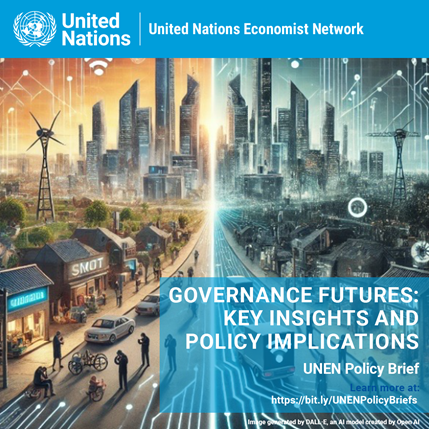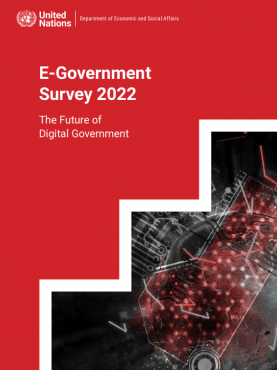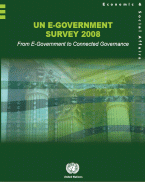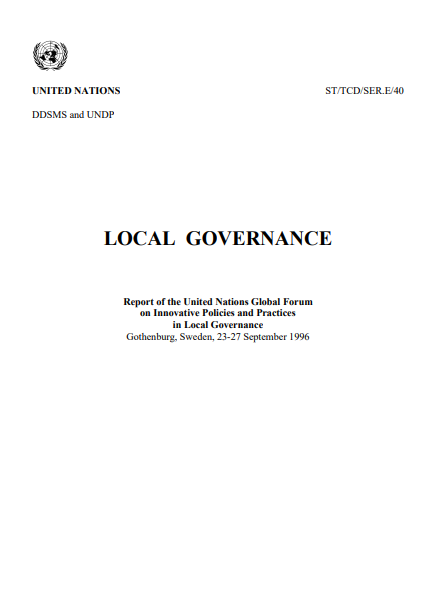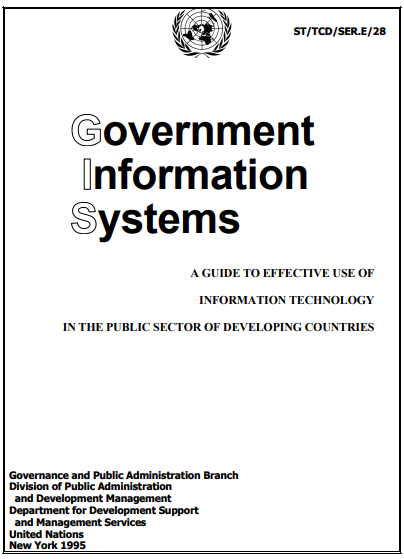| Publications | Policy Briefs | Public Institutions
UNEN Futures and Foresight Policy Brief: GOVERNANCE FUTURES
The UN Economist Network has released a new Futures and Foresight Policy Brief on Governance Futures: Key Insights and Policy Implications. This Policy Brief examines the limitations of current governance systems and proposes alternative models…
| Publications | World Public Sector Reports | Public Institutions
World Public Sector Report 2023
Transforming institutions to achieve the Sustainable Development Goals after the pandemic.The World Public Sector Report 2023 examines the role that national institutional and governance innovations and changes that emerged during the COVID-19…
| UN E-Government Surveys | Digital Government
UN E-Government Survey 2022
The United Nations E-Government Survey 2022 is the 12th edition of the United Nations’ assessment of the digital government landscape across all 193 Member States. The E-Government Survey is informed by over two decades of longitudinal research,…
| UN E-Government Surveys | Digital Government
From E-Government to Connected Governance
From E-Government to Connected Governance
The UN E-Government Survey 2008: From E-Government to Connected Governance assesses the E-Government Development of the 192 Member States of the UN according to a quantitative composite index of e-readiness…
| UN E-Government Surveys | World Public Sector Reports | Digital Government
World Public Sector Report 2003
E-Government at the CrossroadsThe World Public Sector Report 2003 presents a view of e-government as a tool for creating public value. It puts e-government development in the context of the United Nations Millennium Declaration, the Report claims…
| Publications
Administrative Reforms: Country Profiles of Five Asian Countries
In recent years, many countries have undertaken administrative reform as a crucial step towards strengthening their economy and better management of their social development. The state is still playing a key role in the change management of nations…
| Publications | Local Governance
Local Governance- Report of the United Nations Global Forum on Innovation Policies and Practices in Local Governance
Discussions about innovative aspects of the relationship between central and local government (with a view to decentralization and strengthening the mobilization of civil society) are critical to the practical implementation of the Agenda for Peace…
| Publications | Digital Government
Government Information Systems
Inexpensive and powerful microcomputers, telecommunications technologies, and information systems have become an essential element of the development process of developing countries. Information systems for governance and public administration, as…
 欢迎来到联合国,您的世界!
欢迎来到联合国,您的世界!
